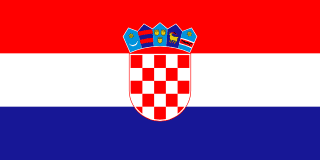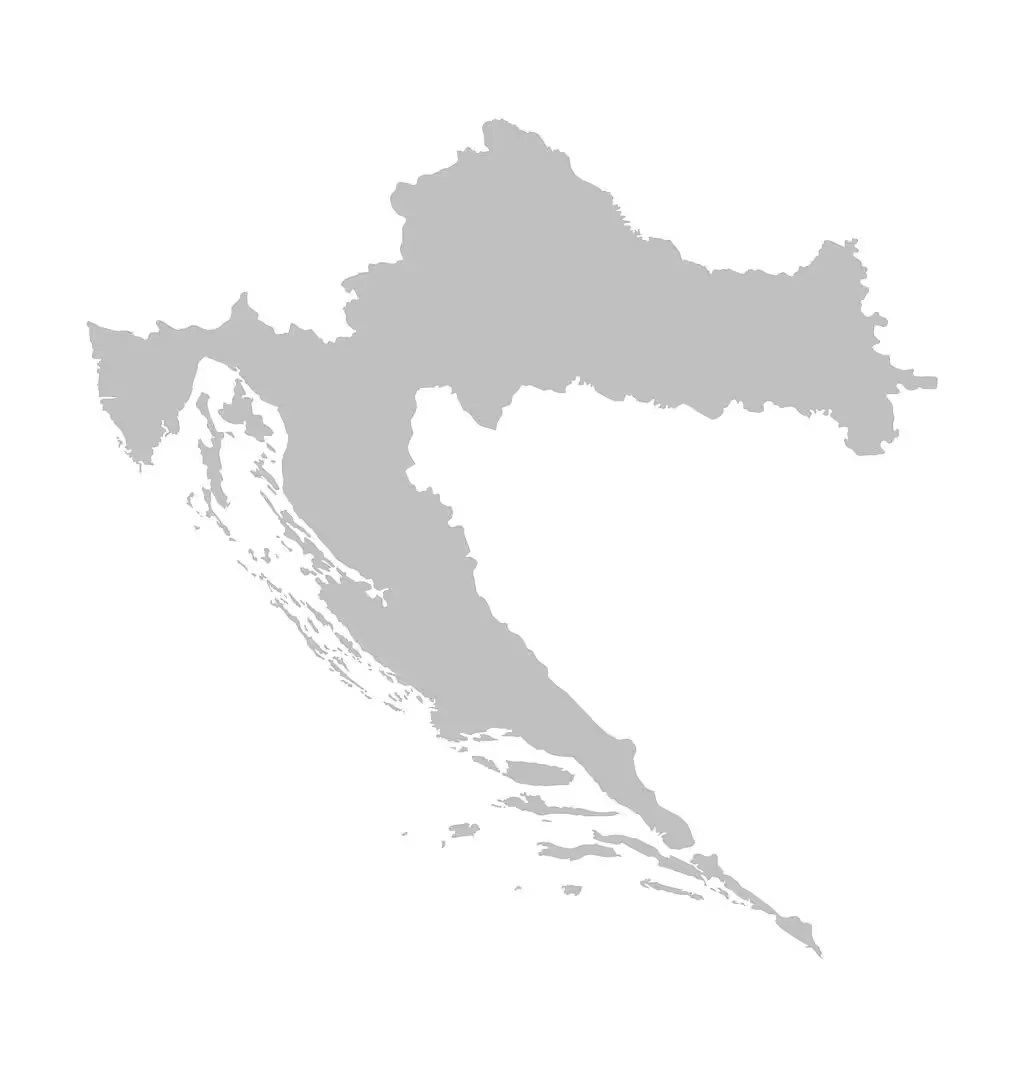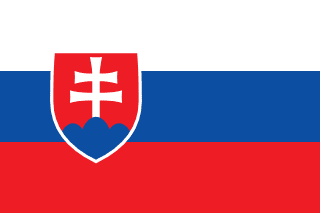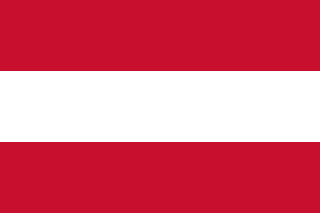

Employer of Record Guide in Croatia
Navigating the hiring landscape in Croatia can be complex, but with the right insights, you can streamline your process. Discover how to compliantly hire top talent and manage your workforce effectively in this dynamic European market.
Capital City
Currency
Languages
Population size
Services available in this country:

Key stats and facts
Croatia's growing tech sector and strategic location make it an attractive destination for global talent acquisition. Understanding the local market dynamics, from Zagreb's thriving business hub to the country's competitive tax structure, is essential for successful expansion.
Major economic hubs
Skills in demand
Currency
Language
GDP per Capita
Standard Tax Rate
Your EOR guide in Croatia
From payroll cycles to parental leave policies, Croatian employment law has specific requirements that can make or break your hiring success. This comprehensive guide breaks down everything you need to know about compensation, benefits, and compliance to hire confidently in Croatia.
Minimum Wage
The national minimum wage in Croatia is €760 per month as of 2025. This applies to all employees working full-time (40 hours per week) and is adjusted annually based on economic indicators.
For part-time employees, the minimum wage is calculated proportionally based on hours worked.
Payroll Cycle
Croatian employers typically follow these payroll schedules:
- Monthly: Most common, paid by the end of each month
- Bi-weekly: Less common but legally permitted
- Weekly: Rare, typically only for temporary or seasonal work
Salaries must be paid no later than the 15th day of the following month for the work performed.
Individual Income Tax
Croatia operates a progressive income tax system with the following brackets for 2025:
| Annual Income (EUR) | Tax Rate |
|---|---|
| Up to €4,800 | 0% |
| €4,800.01 to €30,000 | 20% |
| €30,000.01 to €70,000 | 30% |
| Over €70,000 | 40% |
Tax Residency Criteria
Individuals are considered Croatian tax residents if they:
- Spend more than 183 days in Croatia during a calendar year, or
- Have their centre of vital interests in Croatia (permanent home, family, economic ties)
Tax residents pay Croatian income tax on their worldwide income, while non-residents only pay tax on Croatian-source income.
Employer Payroll Contributions
Croatian employers must make several mandatory contributions on top of the employee's gross salary:
| Contribution Type | Rate | Purpose |
|---|---|---|
| Health Insurance | 16.5% | Croatian Health Insurance Fund (HZZO) |
| Pension Insurance (Pillar I) | 15% | Croatian Pension Insurance Institute (HZMO) |
| Pension Insurance (Pillar II) | 5% | Private pension funds (mandatory for employees born after 1962) |
| Employment Insurance | 1.7% | Unemployment benefits |
| Work Injury Insurance | 0.5% | Workplace accident coverage |
| Total Employer Contributions | 38.7% |
Employee contributions (deducted from gross salary):
- Health Insurance: 0%
- Pension Insurance (Pillar I): 15%
- Pension Insurance (Pillar II): 5% (if applicable)
- Total Employee Contributions: 15-20%
Working Hours
The standard working week in Croatia is 40 hours, typically distributed as 8 hours per day over 5 days (Monday to Friday).
Maximum working hours:
- Daily maximum: 10 hours (including overtime)
- Weekly maximum: 50 hours (including overtime)
- Annual maximum overtime: 180 hours per year
Exempt categories:
- Senior management positions
- Employees with autonomous work schedules
- Certain professional roles (with written agreement)
Overtime Pay
Overtime compensation in Croatia follows these rules:
- Rate: 150% of regular hourly wage for hours worked beyond 40 per week
- Daily overtime: Any work beyond 8 hours per day
- Weekend work: 135% of regular rate for Saturday work, 150% for Sunday work
- Holiday work: 200% of regular rate plus a substitute day off
Alternative arrangements:
- Compensatory time off can be provided instead of overtime pay (1.5 hours off for each overtime hour worked)
- Must be taken within 6 months of earning the overtime
Bonus Payments
While not legally mandated, Croatian employers commonly provide:
- 13th salary: Traditional year-end bonus (often equivalent to one month's salary)
- Performance bonuses: Subject to income tax and social contributions
- Holiday bonuses: Common for Christmas and summer holidays
All bonuses are subject to the same tax and contribution rates as regular salary.
Full-Time vs. Part-Time
- Full-time: 40 hours per week
- Part-time: Less than 40 hours per week, with proportional rights to benefits and leave
- Fixed-term contracts: Maximum 3 years (including renewals)
- Indefinite contracts: Standard permanent employment relationship
Vacation Leave
Croatian employees are entitled to a minimum of 20 working days of paid annual leave. Additional leave may be granted based on:
- Age: +1 day for employees over 30, +2 days for employees over 40, +3 days for employees over 50
- Years of service: +1 day for every 5 years of service
- Working conditions: Additional days for hazardous or strenuous work
- Education level: +1-4 days based on qualifications
Vacation pay calculation:
- Based on average salary from the previous 12 months
- Must be paid before leave is taken
- Unused vacation must be paid out upon termination
Sick Leave
Croatian sick leave provisions include:
- Duration: Up to 42 consecutive days per illness
- Compensation: 70% of average salary for the first 42 days
- Extended sick leave: Beyond 42 days, paid by health insurance at reduced rates
- Medical certification: Required from the first day of absence
- Employer coverage: First 42 days paid by employer, subsequent days by health insurance
Maternity Leave
Maternity leave entitlements:
- Duration: 98 days (14 weeks) - 45 days before birth, 53 days after
- Compensation: 100% of average salary from the previous 6 months
- Funding: Paid by Croatian Health Insurance Fund
- Job protection: Position guaranteed upon return
- Flexible arrangements: Can be extended or shortened with medical approval
Parental Leave
Croatia offers generous parental leave options:
- Duration: Up to 8 months after maternity leave ends
- Sharing: Can be shared between parents or taken by either parent
- Compensation:
- First 6 months: 100% of average salary
- Months 7-8: 70% of average salary
- Part-time option: Can work part-time while receiving partial parental benefits
Bereavement Leave
- Duration: 3-7 days depending on relationship to deceased
- Immediate family: 7 days (spouse, children, parents)
- Extended family: 3 days (siblings, grandparents, in-laws)
- Compensation: Full salary paid by employer
Personal & Family Leave
Additional leave entitlements:
- Marriage leave: 3 days
- Moving house: 1 day
- Blood donation: 1 day
- Care for sick family member: Up to 60 days per year (unpaid after first few days)
- Force majeure: Reasonable time off for urgent family matters
Summary
| Leave Type | Duration | Compensation | Funding Source |
|---|---|---|---|
| Annual Leave | 20+ working days | 100% salary | Employer |
| Sick Leave | Up to 42 days | 70% salary | Employer |
| Maternity Leave | 98 days | 100% salary | Health Insurance |
| Parental Leave | Up to 8 months | 100%/70% salary | Health Insurance |
| Bereavement | 3-7 days | 100% salary | Employer |
| Marriage | 3 days | 100% salary | Employer |
Termination Types
Termination with Cause (Extraordinary Termination):
- Immediate dismissal without notice or severance
- Requires serious breach of duties or misconduct
- Examples: theft, fraud, violence, serious insubordination
- Must be initiated within 30 days of discovering the cause
Termination without Cause (Ordinary Termination):
- Requires valid business reasons (redundancy, poor performance, economic reasons)
- Must follow proper notice periods and consultation procedures
- Severance pay may be required
Mutual Agreement:
- Both parties agree to end the employment relationship
- Terms negotiated between employer and employee
- Can include enhanced severance packages
Notice Period Requirements
Notice periods in Croatia depend on length of service:
| Length of Employment | Notice Period |
|---|---|
| Less than 1 year | 2 weeks |
| 1-2 years | 1 month |
| 2-5 years | 1.5 months |
| 5-10 years | 2 months |
| 10-20 years | 2.5 months |
| Over 20 years | 3 months |
During notice period:
- Employee continues to work and receive full salary
- Either party can waive the notice period by mutual agreement
- Payment in lieu of notice is permitted
Severance Pay
Croatian law requires severance pay in specific circumstances:
Redundancy/Economic reasons:
- Amount: 1/3 of average monthly salary for each year of service
- Minimum: 3 months' salary
- Maximum: No legal maximum
- Calculation: Based on average salary from previous 3 months
Other terminations:
- Generally no severance required unless specified in employment contract
- Collective agreements may provide enhanced severance terms
Probationary Periods
- Maximum duration: 6 months for indefinite contracts, 1 month for fixed-term contracts
- Termination during probation: 7 days' notice required from either party
- No severance: Not required during probationary period
- Full rights: Employees retain all other employment rights during probation
Final Pay Requirements
Employers must provide final payment within 8 days of termination, including:
- Outstanding salary and overtime
- Accrued but unused vacation pay
- Any bonuses or allowances owed
- Severance pay (if applicable)
Termination Documents & Process
Required documentation:
- Written termination notice stating reasons
- Certificate of employment (potvrda o radu)
- Final payslip and tax documents
- Return of company property acknowledgment
Consultation requirements:
- Works council consultation for redundancies
- Trade union notification where applicable
- Individual consultation with affected employees
Anti-Discrimination & Retaliation Laws
Croatian employment law prohibits termination based on:
- Gender, age, race, religion, or nationality
- Pregnancy or family status
- Disability or health condition
- Trade union membership or activities
- Filing complaints or exercising legal rights
Violations can result in reinstatement orders and compensation awards.
National Public Holidays
Croatia observes 13 national public holidays annually:
| Holiday | Date | Type |
|---|---|---|
| New Year's Day | January 1 | Secular |
| Epiphany | January 6 | Religious |
| Easter Monday | Varies | Religious |
| Corpus Christi | Varies | Religious |
| Labour Day | May 1 | Secular |
| Anti-Fascist Struggle Day | June 22 | National |
| Statehood Day | June 25 | National |
| Victory and Homeland Thanksgiving Day | August 5 | National |
| Assumption of Mary | August 15 | Religious |
| Independence Day | October 8 | National |
| All Saints' Day | November 1 | Religious |
| Christmas Day | December 25 | Religious |
| St. Stephen's Day | December 26 | Religious |
Regional Variations
Some regions and municipalities may observe additional local holidays, but these are not mandatory for private employers unless specified in collective agreements.
Holiday Pay Rules
Eligibility requirements:
- All employees are entitled to public holiday pay
- No minimum service period required
- Applies to both full-time and part-time employees (pro-rated)
Compensation rates:
- Not working: Regular daily wage
- Working on holiday: 200% of regular wage plus substitute day off
- Substitute day: If holiday falls on weekend, Monday becomes non-working day
Holiday Scheduling
- Employers cannot require employees to work on public holidays without consent
- Essential services (healthcare, security, hospitality) may have different arrangements
- Collective agreements may specify industry-specific holiday working arrangements
Required Documents for Employment
Employment Contract Requirements:
- Job title and description
- Salary and benefits
- Working hours and location
- Start date and contract duration
- Notice periods and termination clauses
- Must be in Croatian language
Employee Documentation:
- Personal ID (OIB): Croatian tax identification number
- Work permit: For non-EU citizens
- Health insurance card: Proof of health coverage
- Bank account details: For salary payments
- Educational certificates: Relevant qualifications
- Criminal background check: For certain positions
Language Requirements
- Official language: Croatian
- Contract language: Must be provided in Croatian
- Workplace communication: Croatian is standard, though English may be used in international companies
- Documentation: All official employment documents must be in Croatian
Background Checks & References
Permitted checks:
- Criminal background check (for positions requiring it by law)
- Employment history verification
- Educational qualification verification
- Professional licence verification
Restrictions:
- Must be relevant to the position
- Requires written employee consent
- Cannot discriminate based on protected characteristics
- Must comply with GDPR data protection requirements
Data Protection & Privacy
Croatian employers must comply with:
- GDPR: European data protection regulation
- Croatian Personal Data Protection Act
- Employee consent: Required for data collection and processing
- Data retention: Limited to employment duration plus legal requirements
- Cross-border transfers: Restricted outside EU without adequate protection
IP Assignment & Confidentiality
Intellectual Property:
- Work-related inventions belong to employer by default
- Must be specified in employment contract
- Employee may be entitled to additional compensation for valuable inventions
Confidentiality:
- Non-disclosure clauses are enforceable
- Must be reasonable in scope and duration
- Cannot prevent employee from working in their profession
- Trade secrets protection under Croatian law
Probation Period Setup
- Standard period: 6 months maximum
- Contract specification: Must be clearly stated in employment contract
- Evaluation process: Regular performance reviews recommended
- Termination rights: 7 days' notice from either party
- Benefits: Full employment rights apply during probation
Onboarding Timeline
| Step | Timeline |
|---|---|
| Job offer accepted | Day 0 |
| Employment contract signed | Day 1-3 |
| OIB and tax registration | Day 3-5 |
| Health insurance registration | Day 5-7 |
| Bank account setup | Day 5-7 |
| Workplace orientation | Day 7-10 |
| Payroll system setup | Day 10-14 |
What the EOR Handles
Borderless AI manages:
- Employment contract preparation in Croatian
- Tax and social security registration
- Health insurance enrolment
- Payroll setup and processing
- Compliance with Croatian labour law
- Local HR support and guidance
Worker Classification: Employee vs Contractor
Croatian law strictly distinguishes between employees and independent contractors, with significant penalties for misclassification.
Employee characteristics:
- Works under employer's direction and control
- Uses employer's equipment and facilities
- Integrated into business operations
- Receives regular salary and benefits
- Subject to disciplinary procedures
Contractor characteristics:
- Operates independently with own business registration
- Uses own equipment and bears business risks
- Invoices for services provided
- Responsible for own taxes and social contributions
- Not entitled to employment protections
Misclassification risks:
- Back payment of taxes and contributions
- Penalties and interest charges
- Automatic conversion to employee status
- Legal liability for unpaid benefits
Collective Agreements & Trade Unions
Croatia has a strong tradition of collective bargaining:
Coverage:
- Approximately 60% of employees covered by collective agreements
- Sector-level agreements common in manufacturing, construction, public services
- Company-level agreements in larger organisations
Key provisions:
- Often provide better terms than legal minimums
- May include additional leave entitlements
- Enhanced severance and notice periods
- Specific overtime and shift work arrangements
Union consultation:
- Required for collective redundancies (20+ employees)
- Works councils in companies with 20+ employees
- Information and consultation rights on business changes
Cultural Norms & Workplace Expectations
Croatian workplace culture emphasises:
Communication style:
- Direct but polite communication
- Formal address (Vi) initially, becoming informal over time
- Punctuality highly valued
- Meetings tend to be structured and agenda-driven
Work-life balance:
- Standard business hours: 8:00 AM - 4:00 PM
- Long lunch breaks common (1-2 hours)
- August vacation period widely observed
- Family time highly prioritised
Professional relationships:
- Hierarchy respected but not rigid
- Team collaboration valued
- Personal relationships important for business success
- Networking through professional and social connections
Remote Work Considerations
Remote work in Croatia is governed by specific regulations:
Legal framework:
- Amendments to Labour Act in 2020 formalised remote work rights
- Written agreement required specifying remote work conditions
- Same employment rights as office-based employees
Employer obligations:
- Provide necessary equipment or reimburse costs
- Ensure health and safety standards
- Maintain regular communication and supervision
- Respect right to disconnect outside working hours
Tax implications:
- No change to tax treatment for Croatian residents
- Cross-border remote work may create tax complications
- Social security coordination agreements apply for EU workers
Practical considerations:
- Strong internet infrastructure in urban areas
- Growing acceptance of flexible working arrangements
- Co-working spaces available in major cities
- Digital nomad visa available for non-EU remote workers
Built-in benefits packages for Croatia
When the world is your competition, it pays to incentivize new hires and existing alike. Borderless AI benefits packages typically inlucde:

Medical Insurance

Dental Insurance

Retirement Contribution

Life Insurance

Vision Insurance
Explore other countries

Unlock global hiring potential
Simplify your payroll and hiring processes today.


.png)





